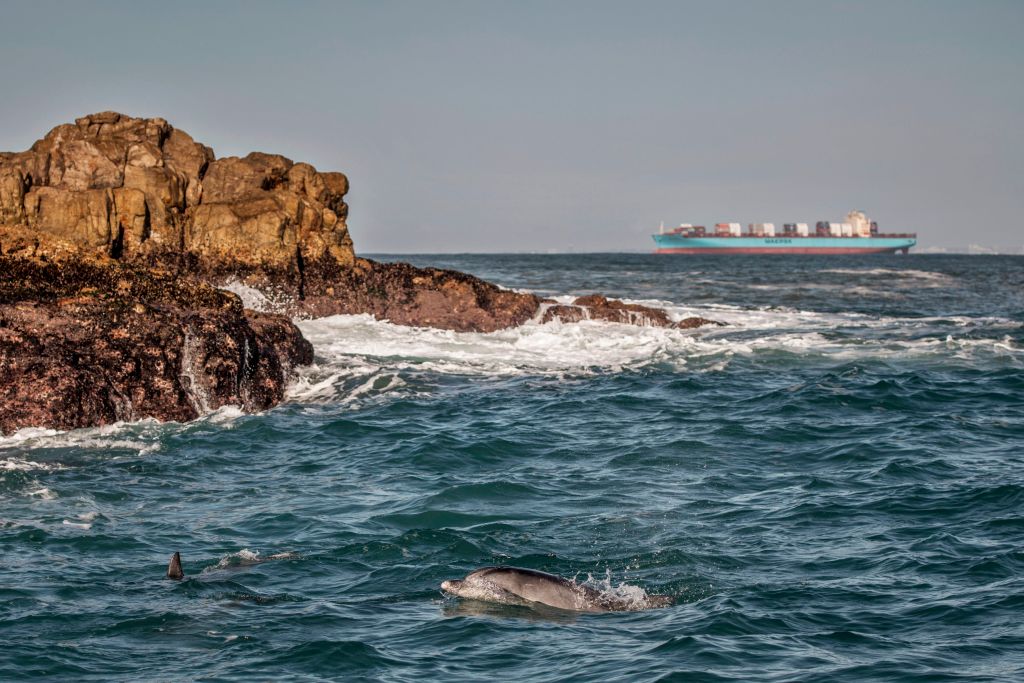South African Researcher Offers Plan to Help Protect Maritime Interests
ADF STAFF
From energy to shipping, tourism and fishing, the ocean plays a major role in South Africa’s economy.
But, as the nation hopes to expand this sector, a researcher at Stellenbosch University said it is time to develop a better strategy to protect it.
A three-step process can help the country protect its waters and boost its blue economy, Francois Vreÿ, emeritus professor of military science at the university, wrote in an opinion piece published by The Conversation.
The first step would be to create a government-led process that includes a “high-office body” and key stakeholders. Secondly, Vreÿ argued that the nation should map its maritime assets and the threats they face. The third step would be to create an integrated national maritime strategy.
Vreÿ wrote that he believes the nation’s evolving “Framework Document on South Africa’s National Interest and its advancement in a Global Environment” and its National Development Plan are too vague on maritime issues. A plan unveiled in 2014 known as Operation Phakisa aimed to grow the blue economy by 250% to 350%. But, Vreÿ believes, more should be done related to security.
“I doubt that any current political will exists to elevate the maritime security matter on the interests and security agenda,” Vreÿ told ADF in an email.
Illegal, unreported and unregulated (IUU) fishing is a scourge in South Africa, as it is in many of the continent’s coastal areas. In South Africa, illegal fishing is decimating the nation’s once-thriving stocks of abalone, rock lobster and other marine species.
As in other coastal nations, vessels engaged in IUU fishing in South Africa routinely sail into prohibited waters, catch huge amounts of fish — often with illicit gear — then transfer catches to large, factory-size vessels farther out at sea.
IUU fishing costs the nation billions of rand, harms ecosystems critical to the survival of marine life and leaves artisanal fishermen with empty nets. The illegal catch from South Africa is often exported to Hong Kong.
Vreÿ does not believe that South Africa faces the same levels of illegal fishing as West Africa, which has been targeted by large industrial vessels, mostly from China, for decades.
“Then again, our ocean territories are very weakly patrolled,” Vreÿ told ADF. “Inherently, our geographic location plays a role, so does the southern ocean conditions, but South Africa has a limited capability to patrol its waters to prevent illegal fishing [and] other maritime crimes.”
One country that has taken a proactive approach to maritime security is the Seychelles. The island nation has led the way in the prosecution and imprisonment of East African pirates, strengthened its small Coast Guard, forged agreements and alliances with foreign powers, and collaborated with other African nations to fight crime.
By 2019, for example, the Regional Coordination Operations Centre in the Seychelles, which mainly conducts joint law enforcement actions at sea, was working around the clock with the Madagascar-based Regional Maritime Information Fusion Centre, which shares maritime information and alerts the RCOC of suspicious activity at sea.
Vreÿ also argued that South Africa would benefit by forming a Department of Maritime Affairs, as has been done in Ghana, although establishing a steering committee that reports to the president is likely a more viable initial approach.
“The maritime domain has essentially become too important to leave within a vague and broad set of statements like South Africa’s” framework document, Vreÿ wrote in The Conversation. “Clearly articulated national interests with a maritime underpinning should inform an integrated national maritime security strategy.”
Vreÿ told ADF that he doubts South Africa’s maritime security problems will be solved anytime soon.
“But the political intransigence and long-term neglect and noncommitment do not mean that regulatory and strategic plans and arrangements and programs must be left to gather dust, not be updated or set in place where absent,” Vreÿ said.


Comments are closed.